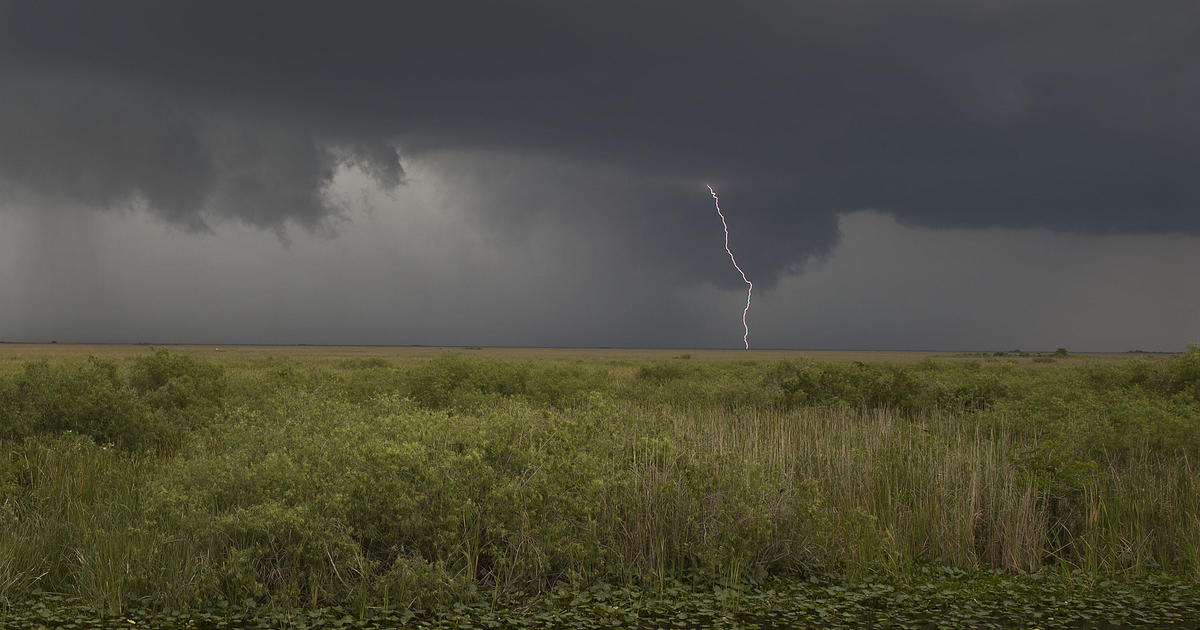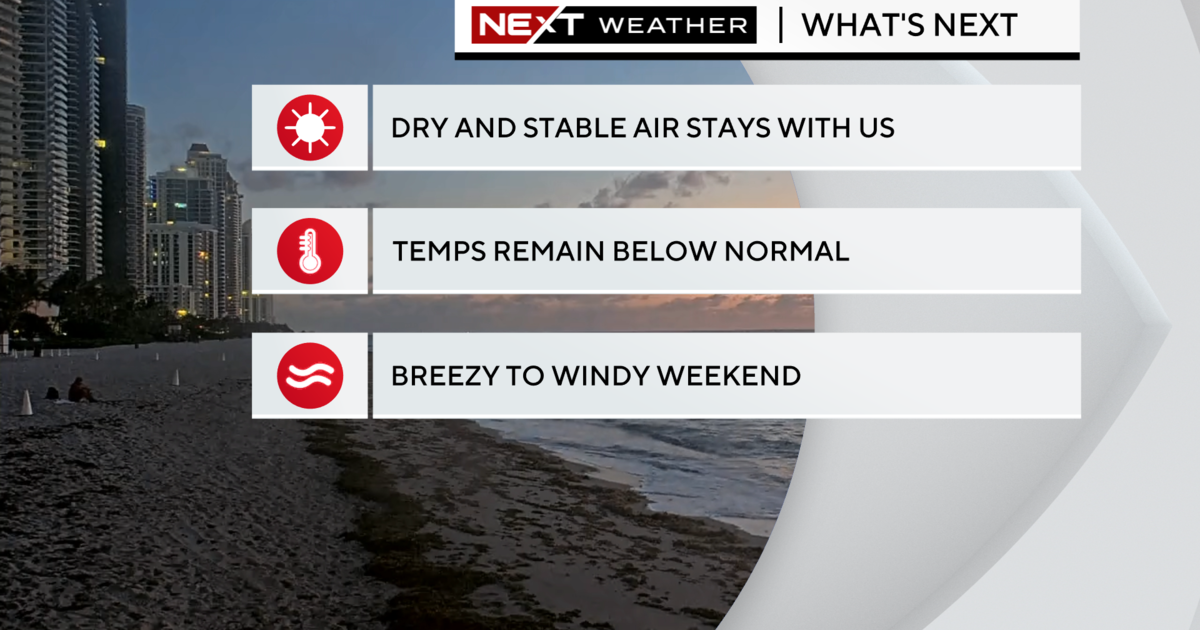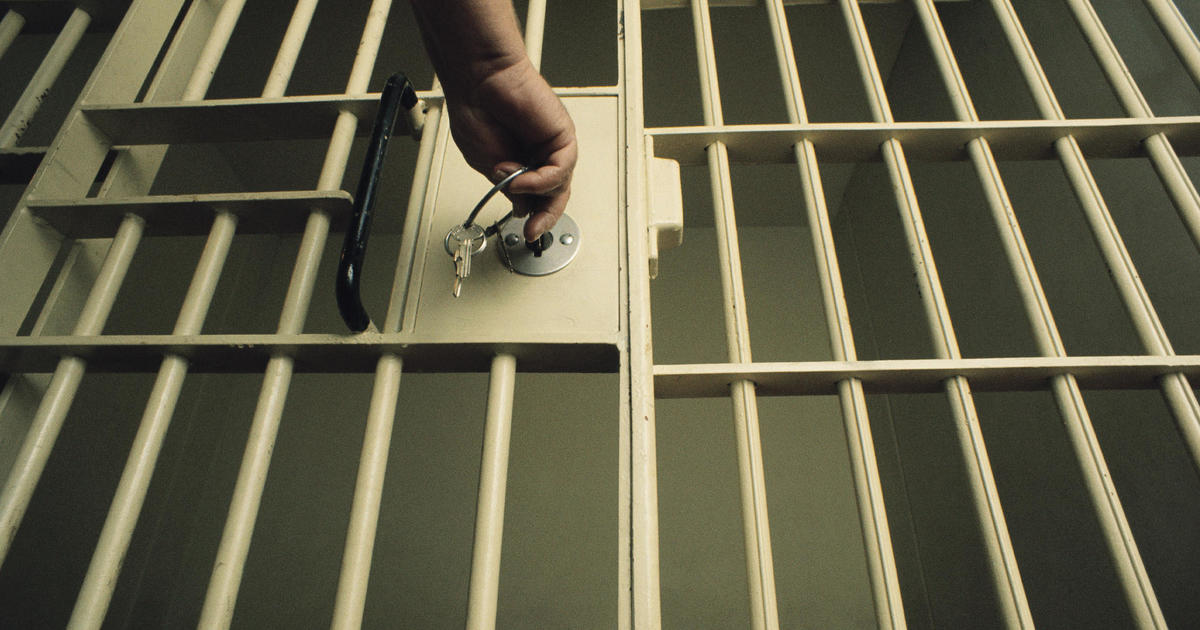NOAA: Lolita Now Covered Under Endangered Species Act
Follow CBSMIAMI.COM: Facebook | Twitter
MIAMI (CBSMiami) – Groups who want to free Lolita, the Miami Seaquarium's lone killer whale, are claiming a victory after the National Oceanic and Atmospheric Administration's (NOAA) Marine Fisheries Services decided to include her under the Endangered Species Act.
This means she will now be considered endangered like her wild counterparts, but NOAA said this does not change Lolita's care in captivity.
"This is not a decision to free Lolita," said a NOAA official during a conference call on Wednesday.
"She's not prepared to be released," Miami Seaquarium curator Robert Rose , said "She'd die, without question."
The Miami Seaquarium released a statement following decision saying Lolita will remain at the park.
"Lolita has been part of the Miami Seaquarium family for 44 years. Just because she was listed as part of the Endangered Species Act does not mean that she is going anywhere," said Andrew Hertz, General Manager at Miami Seaquarium."Lolita is healthy and thriving in her home where she shares her habitat with Pacific white-sided dolphins. There is no scientific evidence that the 49 year-old post-reproductive Lolita could survive in a sea pen or the open waters of the Pacific Northwest and we are not willing to treat her life as an experiment."
Click here to watch Lauren Pastrana's report.
NOAA said, releasing a whale which has spent most of its life in captivity raises many concerns that would need to be "carefully addressed." Some of their concerns include, "disease transmission, the ability of released animals to adequately find food, difficulty in social integration, and that behavioral patterns developed in captivity could impact wild animals."
A distinct population group of Southern Resident killer whales was listed as endangered under the Endangered Species Act (ESA) on November 18, 2005. According to rule, the protection did not include Southern Resident killer whales in captivity prior to the listing.
Lolita, the only Southern Resident killer whale in captivity, was reportedly taken from the Southern Resident killer whale population in the northern Pacific in 1970.
On January 25, 2013, People for the Ethical Treatment of Animals (PETA), the Animal Legal Defense Fund (ALDF), the Orca Network and others petitioned the government to revise the endangered listing of Southern Resident killer whales to remove the exclusion of captive whales from the description and include Lolita as protected under the ESA.
They claimed that DNA and the area where Lolita was captured indicated that she was at one time a member of the Southern Resident killer whale population.
The NOAA's Northwest Fisheries Science Center, which studies the Southern Resident whale population, found the evidence presented supported the groups' claim that Lolita was from the Southern Resident killer whale group that received protection in 2005.
PETA claims that by adding Lolita to the Endangered Species Act it opens the door to further action. The group claims that in addition to her tank at the Miami Seaquarium being smaller than federal requirements, "she has been without a companion of her own species for the past 35 years, and without shelter from the blazing sun—violates the ESA's prohibition on harming and harassing protected animals," according a statement from PETA.
Animal rights activist Susan Hargreaves of the group "Animal Hero Kids" has been participating in "Free Lolita" protests for nearly 30 years.
"It is an absolute crime that she is in the smallest tank in the United States, and the loneliest orca in the world," Hargreaves said.
NOAA said Lolita's pool size is not under their jurisdiction so they cannot comment on it. They add that there is ongoing litigation concerning Lolita's captive care.
Jared Goodman, an attorney for PETA told CBS4's Gary Nelson that Wednesday's NOAA order is "momentous."
"This gives Lolita a shot at freedom," Goodman said. "We believe that her current conditions are a clear violation of the Endangered Species Act."
Goodman sad that PETA and other groups would use rules that prohibit "harming or harassing" endangered species to convince the government that Lolita should be relocated to a large, enclosed sanctuary off the Pacific coast, where she can interact with other whales.
Others argue moving her from the tank she's called home for nearly half a century would cause potentially deadly consequences.
"Any kind of change in her environment in this stage is going to be a risk to her health, whether it's 50 miles or 5000 miles," said Mark Simmons, a marine mammal behavioral scientist.
Simmons was part of the team organized to return Keiko, the whale on which the film Free Willy is based, back into the wild.
Unlike in the movie, Keiko did not survive.
Simmons fears Lolita would meet a similar fate if she were to be transferred to another location.
"What they're contemplating is premediated animal cruelty in my opinion," Simmons told CBS4's Lauren Pastrana.
Currently, the Miami Seaquarium is not proposing to move Lolita. While issues concerning release into the wild are not related to this Endangered Species Act listing decision, any future plan to move or release Lolita would require a permit from NOAA Fisheries and would undergo rigorous scientific review.
PETA said they plan to continue to push for Lolita to be retired from performing and transferred to a seaside sanctuary that's waiting for her in her home waters off Washington's San Juan Islands. If possible, Lolita may even be released back into her family pod, according to the group.
NOAA notes that so far no studies have been authorized to see what impact Lolita would have on the wild population if she was released.
Lolita's endangered species status will take effect 90 days from the date of the ruling.



